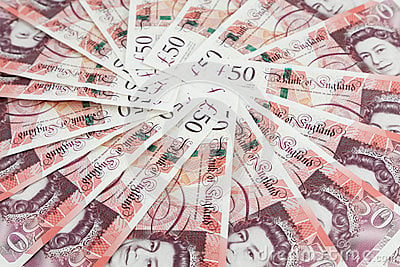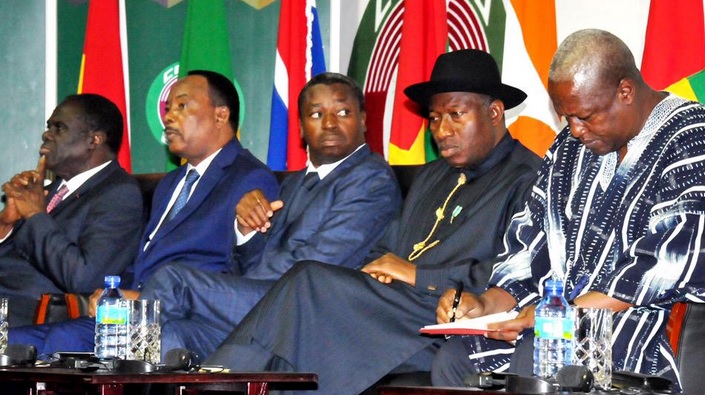The financial markets have encountered a volatile Tuesday due to a variety of economic data, central bank messages from the ECB, and the ever-present Greece headlines inspiring volatility.
Starting with the USD, it is trading higher against its partners with this probably being helped by optimism that tomorrow’s FOMC Minutes will repeat the Federal Reserve’s ongoing commitment to begin raising interest rates later this year. Although vulnerabilities in the US economy are being exposed, and investors are beginning to realise that they completely over-hyped US economic data and consequently interest rate expectations, we remain on track for an interest rate rise this September. When you look at the Federal Reserve’s mandate, it specifies that job creation and inflation is crucial to their decision making – not economic growth.
While recent economic performances are providing the central bank with plenty of reasons to leave rates unchanged for now, it will just slow down the pace of future interest rate rises and not the initial one for this later year. However if the FOMC Minutes do suggest that doubts are beginning to creep in over whether the central bank will raise interest rates at all this year, then the USD is going to be vulnerable to another aggressive round of profit-taking. I am not expecting this, but it is the strongest downside for the USD over the upcoming period.
Greece remains as a headline attraction, with at least some encouraging news being reported over the previous 24 hours as Greek leaders indicate that a deal to conclude this continual sage is probable within the next week. However, I remain skeptical on this because it is not the first time we have heard something positive that has ultimately led to nothing. If there is a deal in the pipeline, I just hope that it is not another extension because this will just lead to these continuing negotiations remaining as an ongoing theme throughout the year. These negotiations have already dragged on for five-months, and I do think the continual uncertainty has correlated in Greece slipping into another recession. The situation just needs to come to a conclusion. Otherwise the risk is high that both investment in Greece will remain low and consumers in Greece will continue to hold back from spending as a result of continued uncertainty.
Advertisement
Currency Markets
Both the Euro and Pound have taken a heavy hit today, with the ECB’s Coeure lighting a fire under the Euro bears and more weak UK inflation data providing validity for the BoE’s continuously dovish views on price pressures. The EURUSD fell over 150 pips to 1.1159 following the ECB’s Coeure suggestion that deposit rates could become more negative, with the main eye-catcher being that QE will be accelerated over the next month or two to avoid the European markets losing liquidity during the summer. I don’t think the news that the ECB intends to accelerate its bond purchases makes that much of a difference, but it does re-highlight the contrast in central bank policy between the ECB and US Federal Reserve while also presenting an opportunity for buyers to close positions.
The GBPUSD has received punishment and dropped to a weekly low at 1.5522 following the news that UK inflation turned negative (-0.1%) for the first time during April. The Cable in itself has encountered bearish momentum this week, and the pair has dropped away from its 2015 high at 1.58 to 1.55 within around three days. In all, the UK inflation reading was once again much weaker than expected and provided some validity towards why BoE Governor Carney repeated his cautious views on the UK economy only last week. The core inflation reading (0.8%) is really weak and pinpoints that the UK inflation woes stretch much further than the decline in the price of oil.
To be honest, the end result of the UK inflation data is that it will only further push back any faint expectations for a UK interest rate rise anytime soon. It is also going to provide ammunition to strengthen the BoE’s well-known and continuously dovish views on UK inflation. Does this mean the GBPUSD will continue trading bearishly? Not really, and the current technicals might present a bounce for the pair over the next couple of days. In order for the GBPUSD to continue falling, the pair needs to close below 1.55. When the pair closed above 1.55 around the same time as the UK election result, it set a new trading range and if you’re either pessimistic on the US economy or expecting a dovish FOMC Minutes tomorrow, the GBPUSD can benefit.
Advertisement
Commodities
After extending to a fresh three-month high at $1232, Gold has slipped back down to $1217 with the markets currently on the mindset that tomorrow’s FOMC minutes will repeat the Federal Reserve’s ongoing commitment to begin raising US interest rates later this year. The Gold market will continue moving in both directions, especially with investors getting edgy and hanging onto every word being said in regards to the possible timing of an interest rate rise. I personally do not think the Federal Reserve will be in any hurry to begin raising interest rates at all, and this is something the Gold bulls can exploit later on.
WTI Oil has slipped below $60 for the second time this week and is currently trading around $59.40. WTI seems to have ranged around the $60 throughout the week and I think we might be setting a new trading range between the 2015 high at $62 and $59. While the WTI bulls have found momentum following a correlation between declining oil rigs and reduced trade surpluses finally being noticed, an aggressive oversupply remains and this can prevent buyers from entering positions. I am still keeping a close eye on the reports that circulated recently that both Saudi Arabia and the United Arab Emirates are increasing production, despite the price of WTI being rather depressed. It is possible that OPEC are trying to increase their market share, while squeezing US producers away.
Indices
Both US and European Indices are rallying on the expectations that central banks will continue their eased monetary policy bias for some time yet. The Shanghai Composite is encountering a similar rally, with the People’s Bank of China (PBoC) under repeated pressure to continue easing monetary policy following economic data frequently pointing out that the Chinese economy is slowing down. Bearing in mind that the ECB’s QE program is set to last for over another year, I do maintain that European indices will continue to look higher in the mid-term and will benefit from any indications that the weaker Euro and ECB stimulus measures are having a positive impact on the EU economy.
US indices are likely to continue moving over the upcoming days, especially with the FOMC Minutes scheduled for Wednesday. Although fragilities in the US economy are being exposed, investors could still react positively to any indications that the Federal Reserve will leave interest rates unchanged for longer than expected. I do expect the Federal Reserve to repeat their ongoing commitment to begin raising interest rates later this year, but the FOMC is also likely to repeat that the cycle of interest rate rises are going to be very slow. This could tempt investors to continue being attracted to US markets in the longer term.
Advertisement
Follow Jameel on Twitter @Jameel_FXTM
For more information please visit: Forex Time
Add a comment







